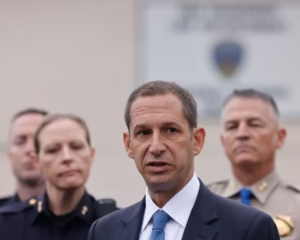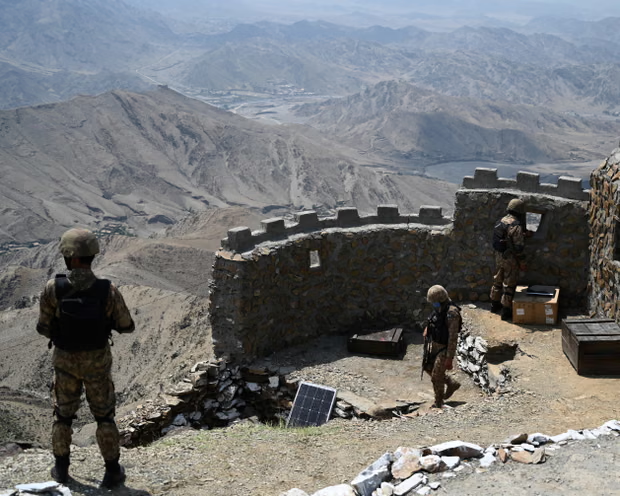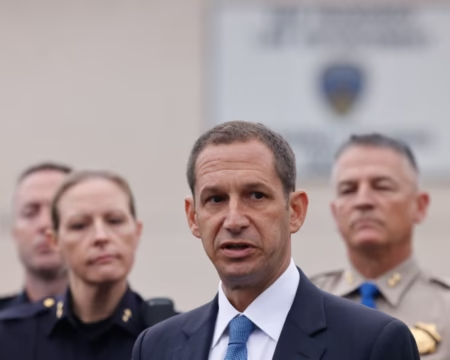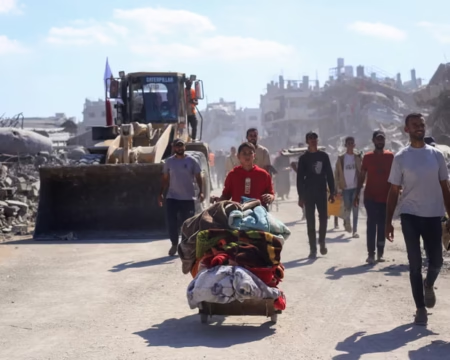Heavy clashes erupted along the Pakistan Afghanistan border on Saturday night after Taliban forces attacked Pakistani military posts, escalating tensions in the region. This violence follows a Pakistani airstrike in Kabul earlier this week, according to security officials from both countries.
Taliban fighters claimed they captured two Pakistani border posts in Helmand province in retaliation for airstrikes on Afghan territory. Pakistani officials confirmed that clashes occurred at multiple border locations and said their forces responded with heavy artillery, tanks, and light and heavy weaponry. “Tonight, Taliban forces began firing at several border points. We retaliated with artillery at four locations along the border,” a government official said.
The Pakistani spokesperson added, “We will not tolerate any aggression from the Afghan Taliban within our territory. Pakistani forces responded effectively, targeting several Afghan border posts.” The use of tanks and artillery highlights the intensity of the conflict, which has raised concerns about wider regional instability.
On Thursday, two explosions were reported in Kabul and another in southeastern Afghanistan. The Taliban-run defence ministry accused Pakistan of violating Afghan sovereignty in connection with these attacks. Analysts say the situation underscores deep-rooted border tensions.
Michael Kugelman, a South Asia analyst in Washington DC, said, “Intensifying cross-border attacks, unusually strong Pakistani strikes in Afghanistan, and Taliban retaliations have created a perfect storm. Afghanistan does not formally recognize the border, and misinformation has made the situation more precarious.”
Islamabad has not directly claimed responsibility for the airstrikes but has urged Kabul to stop sheltering the Tehreek-e-Taliban Pakistan (TTP), blamed for hundreds of attacks on Pakistani soldiers since 2021. The TTP is believed to have received combat training in Afghanistan and shares ideological ties with the Afghan Taliban.
“Fortunately, this crisis, serious as it is, is poised to de-escalate sooner rather than later,” Kugelman added. “The Taliban lack the capacity to fight the Pakistani military head-on. Once retaliations appease public anger, tensions are likely to ease.”
Lt Gen Ahmed Sharif Chaudhry, the Pakistani military spokesperson, confirmed the strikes and said, “To protect the lives of the people of Pakistan, we are doing, and will continue to do, whatever is necessary.” He urged Afghanistan to prevent its territory from being used for attacks against Pakistan.
Security analyst Imtiaz Gul noted that recent clashes are a logical outcome of long-standing tensions. “The kinetic attacks on TTP hideouts and Kabul’s continued inaction have provoked Pakistan to take direct action,” he said. The resulting Taliban retaliation was expected given the strained relations between the two countries in recent months.
Kugelman warned that Pakistan’s recent airstrikes could prompt the TTP to launch retaliatory attacks, potentially triggering more Pakistani operations in Afghanistan. “This cycle could continue. There are no winners or easy long-term solutions,” he said.
The border, known as the Durand Line, stretches nearly 2,600 kilometers (1,600 miles) and is rugged and mountainous. Both nations have struggled to enforce control in this area, which has long been a flashpoint for conflict.
Gul explained, “Pakistan’s patience has been wearing thin, prompting direct action against TTP leaders. The Taliban now present these operations as retaliatory attacks.” The escalation underscores the fragile security environment and the complex interplay between Pakistan, the Taliban, and TTP militants.
As artillery and tank exchanges continue, civilians on both sides face growing risks, while analysts warn that a clear resolution remains uncertain. Without cooperation from both Islamabad and Kabul, the border is likely to remain a hotspot for violence, threatening regional stability and security.







